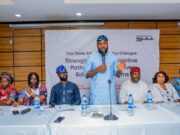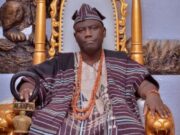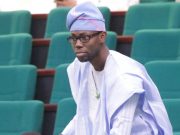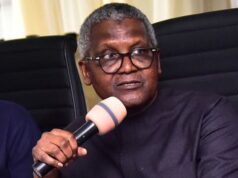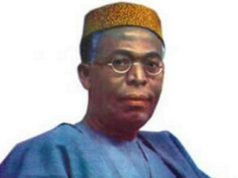Former President Olusegun Obasanjo has said that Nigeria can only defeat the Boko Haram insurgency when both the political and security leadership begin to think beyond the available narrative about the sect.
He added that documenting the experiences of those affected can help the country understand the issue and develop effective strategies to address it.
Obasanjo made this known while speaking as the chairman of the occasion at the public presentation of “Scars”, a book authored by former Chief of Defence Staff, General Lucky Irabor, in Abuja, on Friday.
He said, “When in 2011, after Boko Haram had attacked the UN office here in Abuja, I went to Maiduguri to find out if there was Boko Haram, and what it was? Who were they? What are their objectives? What do they want? How can we satisfy them? And I found out, yes, there was Boko Haram. I found they were not really aiming for anything political or anything seriously religious. But people who were looking for a better life, and any other thing attached to that, are a better life for them.
“Have we understood that? If we have, have we taken the steps that we should take? If we have, why is it that after 15 years, Boko Haram is now gradually becoming part of our lives? Should we accept that? If we do not accept it, what should we do? How much do we know?”
“Even from the other side, and from this side, have we been active enough? Have we been proactive enough? I think we have to ask ourselves the necessary questions to be able to deal with this … something that is now becoming a monster within our country.”
The former president noted that while Nigeria has faced various security challenges since independence, Boko Haram stands out for persisting for over 15 years without resolution, largely due to a lack of proper understanding of the group.
He noted that General Irabor’s book examines the past to identify factors that could be hindering progress in the present and future, praising the courage of the author to say things as they were.
Obasanjo said, “I believe that is what you have tried to do in your book. There is normally the tendency of ‘don’t talk about it’, let’s leave it. And I believe that we will get out of that culture.
“The history and life of any nation has the good, the bad, and the ugly. What is important is to look at it and to think about it. And when we have to find solutions, we may even look beyond what we can see. Let us think beyond what is available. And I think that is what you have done here.
“I will urge and appeal to those who have things to say about this particular issue of Boko Haram to say it. We don’t even know where Boko Haram stops and banditry starts, and kidnapping begins. They are all mixed together.
“And by the time we go, even those who have been on the other side, who have been part of a supporter of Boko Haram, for whatever Boko Haram is, let them write, let them speak up, and that way, we will be able to find solutions to these ugly problems,” he added.
Credit: thenationonlineng.net









